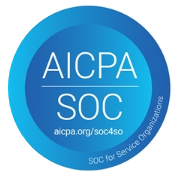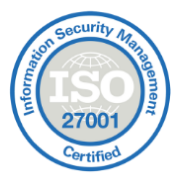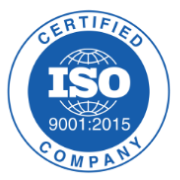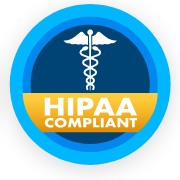With the increasing demand for online training in Europe, organizations and educational institutions are seeking robust Learning Management Systems (LMS) to deliver effective e-learning experiences.
In this blog post, we will explore the top 15 LMS platforms specifically designed for European training needs. Each platform will be assessed based on its features, localization options, language support, and compliance with European regulations. Additionally, we will highlight the pros and cons of each LMS to help you make an informed decision for your online training requirements.
Explore the top 15 LMS platforms specifically designed for European training needs
Paradiso LMS:
Paradiso LMS provides a customizable and feature-rich platform that caters to the unique needs of organizations. It offers a multi-tenant architecture, allowing multiple organizations or departments to use the LMS under a single instance. Paradiso LMS also provides e-commerce capabilities, enabling organizations to monetize their training programs. However, due to its extensive features and customization options, administrators may face a steeper learning curve during implementation and configuration.
Moodle:
Moodle is a widely recognized open-source LMS that offers extensive customization options and a robust feature set. It supports multiple languages, making it ideal for organizations with diverse learners in Europe. Moodle’s flexibility allows administrators to create and manage courses, assessments, and collaborative activities. It also offers a range of plugins for seamless integration with other tools and platforms. However, Moodle may require technical expertise for initial setup and ongoing maintenance.
Totara Learn:
Totara Learn is designed for corporate training and offers advanced features such as performance management, compliance tracking, and personalized learning paths. It provides a comprehensive solution for managing employee development, skills tracking, and competency-based learning. Totara Learn supports multiple languages and localization options, making it suitable for European organizations. However, compared to other platforms, it may have limited support for third-party integrations.
Docebo:
Docebo is a cloud-based LMS that provides a user-friendly interface and a wide range of features for creating and delivering engaging online courses. It offers extensive language support, including European languages, and provides localization options for seamless integration with local training requirements. Docebo’s AI-powered capabilities enable personalized learning experiences, content curation, and automated recommendations, enhancing learner engagement and knowledge retention. However, the pricing structure of Docebo may be higher for certain organizations.
TalentLMS:
TalentLMS is a flexible and scalable LMS suitable for organizations of all sizes. It offers a user-friendly interface, and mobile compatibility and supports multiple languages. TalentLMS provides features like gamification, video conferencing, and content authoring tools, empowering trainers to create interactive and engaging courses. It also offers compliance and reporting features to meet European regulatory requirements. However, it may have limited reporting and analytics features compared to some other platforms.
LearnUpon:
LearnUpon is a cloud-based LMS that focuses on user-friendliness and intuitive design. It offers many features, including content creation, learner management, and comprehensive reporting capabilities. LearnUpon supports extensive integrations with popular tools, making it easy to incorporate existing systems into the learning ecosystem. However, the customization options for branding may be limited compared to other platforms.
Cornerstone OnDemand:
Cornerstone OnDemand offers a comprehensive talent management suite that includes learning management, performance management, succession planning, and more. It provides robust compliance features, allowing organizations to meet regulatory requirements effectively. Cornerstone OnDemand also offers customizable workflows, allowing administrators to tailor the system to their needs. However, it should be noted that Cornerstone OnDemand’s pricing plans tend to be higher compared to some other LMS platforms. Additionally, due to its extensive functionality, administrators may require some time to familiarize themselves with the system’s features, resulting in a potentially steep learning curve.
SAP Litmos:
SAP Litmos offers an intuitive and user-friendly interface, making it easy for both administrators and learners to navigate the platform. It provides extensive mobile learning support, enabling learners to access training materials on their preferred devices. SAP Litmos also offers a wide range of integrations with popular tools and platforms, enhancing the overall learning experience. However, one potential drawback is that it may have limited content authoring capabilities, which may require organizations to rely on external tools for creating complex e-learning content.
iSpring Learn:
iSpring Learn stands out for its easy-to-use interface, making it accessible for users with varying technical expertise. It offers powerful content-authoring tools that allow organizations to create engaging and interactive courses. iSpring Learn also provides strong reporting features, allowing administrators to track learner progress and assess the effectiveness of training programs. However, it’s important to note that iSpring Learn may have limited support for language localization, which can be a consideration for organizations with multilingual training needs.
Absorb LMS:
Absorb LMS features a user-friendly interface that simplifies the learning experience for both administrators and learners. It offers gamification features to enhance engagement and motivation among learners. Absorb LMS also provides comprehensive reporting capabilities, enabling organizations to track learner progress and analyze training effectiveness. However, it’s worth mentioning that Absorb LMS may have limited language localization options, which could be a consideration for organizations operating in multilingual environments.
TalentCards:
TalentCards focuses on micro-learning, offering a mobile-first approach that delivers bite-sized, interactive content to learners. Its intuitive content creation tools allow organizations to develop engaging and visually appealing learning cards easily. However, TalentCards may have limited course management features compared to more comprehensive LMS platforms. It is most suitable for organizations that deliver quick bursts of knowledge and reinforce learning through microlearning techniques.
D2L Brightspace:
D2L Brightspace emphasizes collaborative learning, offering features facilitating group discussions, teamwork, and knowledge sharing. It provides advanced analytics capabilities, allowing organizations to gain insights into learner performance and engagement. D2L Brightspace also focuses on accessible design, ensuring that learners with disabilities can access and participate in online training. However, it’s important to note that the pricing of D2L Brightspace can be higher for smaller organizations, which may be a consideration for budget-conscious entities.
NEO LMS:
NEO LMS boasts a user-friendly interface that simplifies the learning management process. It offers extensive assessment options, including customizable quizzes and assignments. NEO LMS also provides robust customization capabilities, allowing organizations to tailor the platform to their branding and training requirements. However, similar to other platforms, NEO LMS may have limited language localization options, which could be a factor for organizations operating in multilingual environments.
JoomlaLMS:
JoomlaLMS is a scalable LMS that offers comprehensive reporting capabilities, allowing organizations to track learner progress and gather valuable insights. It provides extensive e-commerce features, enabling organizations to sell and manage online courses effectively. However, it’s important to note that JoomlaLMS may have limited integrations with popular third-party tools, which may be a consideration for organizations looking to integrate with existing systems.
Absorb Infuse:
Absorb Infuse features a user-friendly interface that ensures a smooth learning experience for administrators and learners. It provides mobile learning support, allowing learners to access training materials on various devices. Absorb Infuse also offers advanced reporting capabilities, allowing administrators to generate detailed reports on learner performance and training effectiveness. However, one potential limitation is the limited content authoring options, which may require organizations to use external authoring tools for more complex course creation.
Final Thoughts:
Choosing the right LMS for online training in Europe is crucial for delivering effective e-learning experiences. The top 15 LMS platforms reviewed above offer a range of features, localization options, language support, and compliance with European regulations. While each LMS has pros and cons, it’s important to assess your specific training requirements, budget, and desired features before deciding.
Whether you prioritize customization, scalability, compliance, or user-friendliness, an LMS on this list can meet your organization’s unique needs. Take the time to evaluate each option carefully and select the best LMS that aligns with your online training goals in Europe.

















